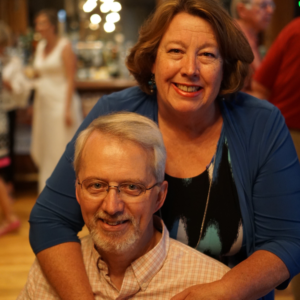“Thanks to clinical trials and the grace of God, I’m alive today,” says Rhonda Long, who has battled a rare bile duct cancer for years. “A surgeon cut out more than half of my liver, removed 13 lymph nodes, and found cancer in two of them,” she recalls.
While chemotherapy and radiation treatments were initially successful, the second round failed to check the cancer. “I needed a lifeline. The next step was a clinical trial,” Long says, and was lucky when her oncologist found where she was eligible. “It was the hope I needed.”
Unfortunately, the hope of the trial was swiftly tempered by realities and logistics. “I would have to travel every three weeks from Ohio to Boston just to get my treatment. This wasn’t something my family could afford,” Long says. Each trip cost about $1,000 out of pocket, and it wasn’t covered by insurance, she adds.
“As expenses piled up with each trip, I wondered how long I would be able to stay in the trial,” she says. “My husband and I had always been so vigilant with our savings, mindful about planning for retirement, and keeping up with health insurance…but there’s no preparing you for this.”
Long wasn’t certain she could remain in the trial without outside assistance. Then she found “a godsend” in the form of the Lazarex Cancer Foundation.
“When I saw the Lazarex website, it spoke to me. I knew that many African American cancer patients don’t participate in clinical trials because of lack of resources. But because of the reimbursements from Lazarex, I’m able to continue in a program—a life-saving clinical trial—that I would have been excluded from because of financial difficulties,” she says.
Years into her treatment, Long is “stable and fighting every day,” she reports. But she shudders to think what might have happened if she couldn’t remain in the clinical trial that arguably saved her life.
“Clinical trials and [support from] Lazarex literally saved my life,” says Mike Snyder, who has battled bone cancer since 2006 and participated in eight clinical trials. Like Long, however, his initial wave of enthusiasm when informed about clinical trials was dampened by harsh realities.
“The protocol for the clinical trial required me to travel from my house in Albuquerque to Houston every two weeks for treatments and prescriptions,” Snyder recalls. “After seven months of travel to Houston, we were nearly broke. We had gone through savings, inheritance money, and a second mortgage paying for my travel and care.”
In fact, Snyder was weeks away from “either stopping the treatment or moving to Houston so I could continue in the clinical trial. But moving meant quitting my job, uprooting my family, and going on disability,” he recalls. Filing for bankruptcy wasn’t out of the question, either. “No one should have to make these kinds of choices,” he says.
“Then Lazarex stepped in to help,” Snyder recalls. All travel costs were covered. “I could continue my drug trial and treatment,” he says. “I could focus on healing and living. Hope came back to our house when Lazarex started helping us. The help from Lazarex has been and continues to be a blessing on so many levels.”
Author: Michael Causey



